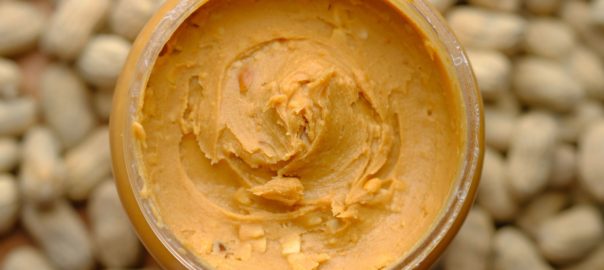The FDA is out to lunch - with yet another case of food poisoning in the news it's clear that those charged with keeping our food supply safe are not doing their job. The scariest part of this is that in the face of budgetary cuts there are talks of allowing food producers more leeway to self-monitor. This is putting the fox in charge of the hen house. If true sanctions and consequences were put into place there might be more attention paid to the safety of the food products.
Salmonella Contamination
Fortunately that is happening in at least one situation. Sunland Inc, the company responsible for manufacturing salmonella-laden peanut butter in the recent outbreak has been closed. Articles that I have seen indicate that the company was surprised by this move and thought they would be able to re-open by the end of the year. But after reading the conditions there and the continual disregard for food safety it is good to know that they will not be allowed to continue until they can prove (not just say but prove via inspection) that they have cleaned up their act. I hope this trend of requiring manufacturers to truly be responsible, and not just say they're following the rules, continues.
I was so upset to read this latest article from the Consumer's Union. Apparently PCA, the company responsible for the salmonella-contaminated peanut butter that has killed a number of people and sickened many more has declared bankruptcy. This effectively removes them from any legal due process being brought against them. The worst part is that they knew and ignored the fact that their product was contaminated as reported here.
The best that we can hope for at this point is that there are no further illnesses or deaths and that this will bring about much-needed changes to our food supply system.
Rat Feces
And salmonella isn't the only thing found in peanut butter. Although this article is two years old it mentions rat feces. I was not able to find specific mention of rat feces allowed in peanut butter (assuming that is part of what the FDA lists as "objectionable matter contributed by rodents") but did find mention of rodent hairs at 1 or more per 100 grams of product being considered an "aesthetic" (their word not mine) defect and possibly actionable. Also found in peanut butter? Neurotoxic chemicals. Peanuts are a highly pesticide residue contaminated crop; this makes choosing organic an important factor for those who choose to eat peanuts and peanut products.
I found it interesting to note that the article also did a side by side taste-test comparison of various peanut butters. All of them were jarred, most had oil residue floating on the top, and sounded very unappealing from both a taste and visual perspective. While the article didn't list the ingredients I'm sure that most of them have added fat (thus the extra oil floating at the top), sugar, and salt. None of which is really needed for peanut butter.
Other Challenges
Over the years peanut butter has increasingly gotten a bad rap, primarily due to allergies. It's a popular legume though and that makes it difficult to tell people that they should avoid peanuts. That bad rap, however, is not undeserved. Part of the health challenge is that peanuts are a highly inflammatory legume. They also tend to be high in carcinogenic aflatoxins and are frequently contaminated by the aspergillis fungus.
Additionally many health issues, from migraines to candida overgrowth to intestinal disorders are negatively impacted by consumption of peanuts and peanut products. So while we consider them delicious they should be severely reduced or eliminated from the diet.
It turns out peanut butter used to be considered a health food and was actually only sold regionally. Over time this has changed and we now ship the stuff all over the world. Except for the grind-your-own variety of course.
Healthy Alternatives
At my local grocery store there is a grind-your-own peanut butter machine. At $3.99 per pound for organic, unsalted peanuts they sell a relatively creamy, good tasting, fresh smelling product. Of course there is no way to know if anything has gotten into the peanuts in the machine; this means trusting the grocery store to clean it thoroughly on a regular and frequent basis.
For those who can have nuts, a healthier choice might be almonds, and almond butter, which is the most alkaline of nuts and has a much lower allergenic profile.
Want to know what's really in your food? Get a copy of The Pantry Principle to learn more.


